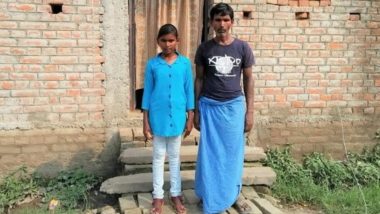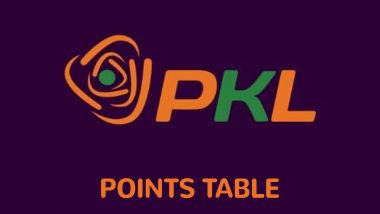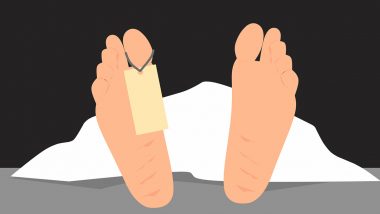Mumbai, September 23: The COVID-19 crisis has brought the entire world to a standstill as millions have been affected by the pandemic. India has seen a cascading effect on livelihoods and children's education. recently conducted a survey that sheds light on a number of critical issues that have emerged in the urban and rural communities as a direct effect of COVID-19 and the ensuing lockdown.
One such adversely effected area is Maulana Buddhu Chak, a village 2 hours away from the capital city of Patna in Bihar where one of Magic Bus's participant, Sulekha studies; in the eighth standard of a school in her village. She lives with her three siblings - one elder sister and two brothers - and her parents. India Reports 83,347 New COVID-19 Cases in Past 24 Hours, Tally Crosses 56-Lakh Mark, Death Toll Rises to 90,020.
Her father does odd jobs while her mother works in the field. After schools closed, while Sulekha and her elder sister stayed at home, managing the household chores and taking care of the younger brother, their parents went out to work and took their brother along.
Key findings from the survey anticipate a significant increase in the scale of poverty in India. According to the survey, 92 per cent of parents want to send their children to school or college after the lockdown ends. However, 41 per cent of parents admitted to not being in a position to afford education, which clearly shows the intent versus their ability.
Pooja Verma, Magic Bus Youth Leader who has been working in this community, says that most families in the village survive on a meagre income. She works with 170 children in the village. Despite poverty, she found them to be 'eager to learn but without a suitable platform that could help them do so'. Pooja ensured Sulekha was included in the telephonic interactions she would have with all the children on the programme.
Sulekha's father had asked Pooja about Magic Bus and what his daughter would gain from these regular telephonic sessions. Her explanations had convinced him that his daughter could learn from these sessions. Her father who is a daily labourer spent a part of his hard-earned money - Rs 1800 - to get his daughter a mobile phone!
The COVID-19 pandemic has been the hardest for families like Sulekha's. It has also been a difficult time for children. With schools closed, they have been confined within homes in inadequate spaces. Approx. 40 per cent of adolescents reported that they did not have enough time to study and were not able to concentrate on their lessons. Only 59 per cent adolescents admitted to having a fixed place at home to study. The Magic Bus Survey shows that 34 per cent of respondents don't own a mobile phone, directly affecting accessibility to study resources. Coronavirus in India: Live Map.
Due to the on-going pandemic, the entire programme has been shifted to virtual sessions with a vision of uninterrupted learning. Through its COVID-19 Crisis Recovery programme, Magic Bus is working towards restoring the incomes of families in rural and urban locations across India by connecting them to local employment opportunities and government schemes.
This in turn will keep children from being pushed into child labour, child trafficking or early marriage. Magic Bus' goal is to help restore incomes of 2,00,000 families and ensure 3,00,000 children stay in school, complete their education, and get better employment opportunities.
Magic Bus was founded in 1999 by Matthew Spacie. From 3000 children in 1999 in Mumbai. Magic Bus has transformed over one million children and young people living in poverty, taking them from a childhood full of challenges to a life with meaningful livelihoods.
Magic Bus is one of the largest poverty alleviation programs in India, impacting 3,75,000 children and young people in 22 states and 80 districts of India, in this year alone. We delivered our sports activity-based sessions in close to 2000 communities and 1000 schools in both urban communities and remote rural areas. Since the Livelihood programme began in 2015, we have 42 Livelihood centers. How Will India Distribute COVID-19 Vaccine Once Developed? Will It End Coronavirus?.
Through these livelihood centers, 30,000 youth have been trained and more than 70 per cent placed in jobs in the organized sector with an average salary of Rs 10,849. Magic Bus also works in Nepal, Bangladesh, and Myanmar with 6000 children, in 40 communities and 31 schools. We have networking and fundraising offices in the US, UK, Singapore and Germany. This story is provided by NewsVoir. ANI will not be responsible in any way for the content of this article.













 Quickly
Quickly




















